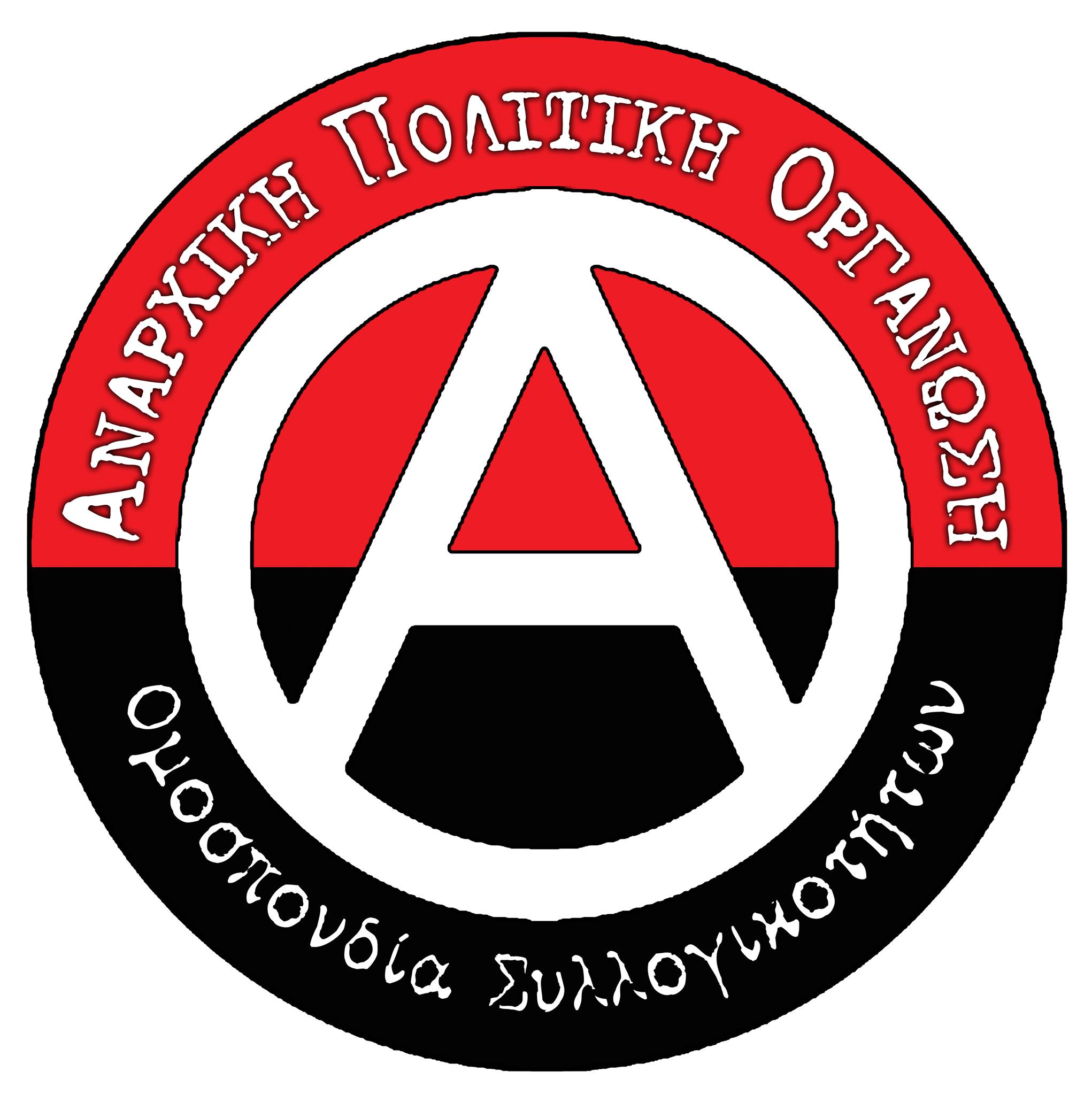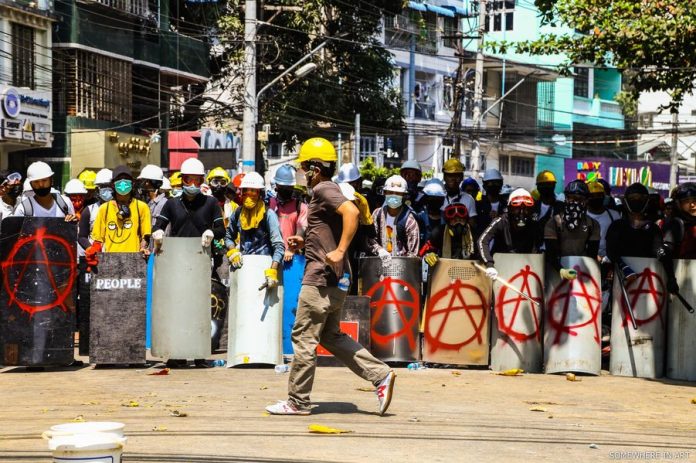On 1st of February, the Myanmar army led by General Min Aung Hlaing seizes control, overthrowing the elected government of the National League for Democracy (NLD), which took power in the 2011 elections. The military coup has been opposed by thousands of people who have risen up in protests, strikes and clashes with army and police forces on a daily basis.
The resistance force to the military coup of February 1 counts more than 400 dead, countless wounded and more than 2,000 prisoners. A part of this resistance is also constituted by anarchists, who are flanking the lines of social conflict either in solidarity groups such as Food Not Bombs-Myanmar, or on the front line of self-defence against the murderous attacks of the army. While the number of people in struggle rallying on the streets is getting larger and the conflicts are being generalised, the repressive fury of the military junta is becoming increasingly brutal, to the point of murdering at least 114 demonstrators in one day in some of the largest cities of the country. At the same time, there are skirmishes between army forces and armed militias that are part of the many ethnic groups with a relative autonomy that form up the state of Myanmar, leaving open the possibility of a generalised civil conflict. In addition, the previous government is also responsible for the pogrom in 2017, launched by the army against the Rohingya Muslim ethnic group, which resulted in dozens of deaths and 700,000 displaced people in neighbouring Bangladesh living in dire conditions in refugee camps. Another moment of state brutality for which the “civilized” West was deafeningly silent.
On March 27, at the 76th anniversary of the beginning of the resistance to Japan’s occupation of the country, (an anniversary that has been established as Armed Forces Day), the Junta chose to show off its fierceness by brutally repressing protests and murdering demonstrators. At the same time, the military regime held a parade in the area of Naypyitaw, which was attended by representatives from eight countries (Russia, China, India, Pakistan, Vietnam, Bangladesh, Laos and Thailand), expressing their support for the regime. On the other hand, the Western Powers limit themselves to a lukewarm condemnation of the violence against the people of Myanmar by the dictatorial regime, without taking a clear stance against it, which shows that they are looking for opportunities for alliances and expansion of their power and their role in this volatile field of geopolitical relations. The only certainty is that the intensification of inter-capitalist antagonisms will bring more violence, oppression and misery for the peoples of the wider region of the long-suffering Southeast Asia, where for years the Great powers have created a suffocating field of hostilities while the peoples have been trying to take some breathes of freedom from the States and the Capital.
Against the face of modern totalitarianism imposed on the entire world map and deepening even more on the occasion of the pandemic of Covid-19, where states are further investing in militarisation for the repression and the control of societies, as anarchists we are convinced that class and internationalist solidarity between peoples is the only alternative. The organised counterattack of the exploited classes and the overthrow of the State and capitalism at a global level can shape the conditions for the creation of a society of prosperity, equality, peace and justice, free of exploitation, wars and disorientating antagonisms.
From France and Spain with the Βills to deprive freedom of speech and the USA’s racist police killings, from the State repression of anyone who resists in Turkey and the State terror on the society in Greece to the military coup in Myanmar, we stand with those in struggle wherever they are fighting for their freedom and for a world that can accommodate many others.
INTERNATIONALIST SOLIDARITY
AGAINST MODERN TOTALITARIANISM
ORGANISATION AND STRUGGLE
FOR ANARCHY AND LIBERTARIAN COMMUNISM
Anarchist Political Organization | Federation of Collectives





![[gr, eng] Παύση κάθε δίωξης του αναρχικού Libre Flot](https://apo.squathost.com/wp-content/uploads/2023/10/banner_flot-218x150.jpg)
![[Θεσ/νίκη] Συγκέντρωση για την εργοδοτική δολοφονία των 5 εργατριών στην Βιολάντα](https://apo.squathost.com/wp-content/uploads/2026/02/633734580_1213536577618535_5289497541303489159_n-324x160.jpg)